"What's wrong with the way I talk? What's the big idea?"
Consider this review a sticky note for me to revisit Singin’ in the Rain in the years to come.To cut to the chase: I love this film— every colorful, vibrant frame of it. However, I am aware that my appreciation for it is, as of June 2023, missing its full context. While it frequently ranks near the top in polls collecting the greatest films of all time, I have long had the suspicion that this lofty placement serves as a stand-in for mid-century Technicolor musicals in general as much as a tribute to the film itself.
As of now, I have not seen nearly enough of classic Hollywood musicals to say with confidence whether Singin’ in the Rain really is that much better than the rest. For the time being, I offer my Is It Good? Score and a few thoughts on it, understanding that my assessment may shift — upwards more likely, I reckon — as I watch more musicals.
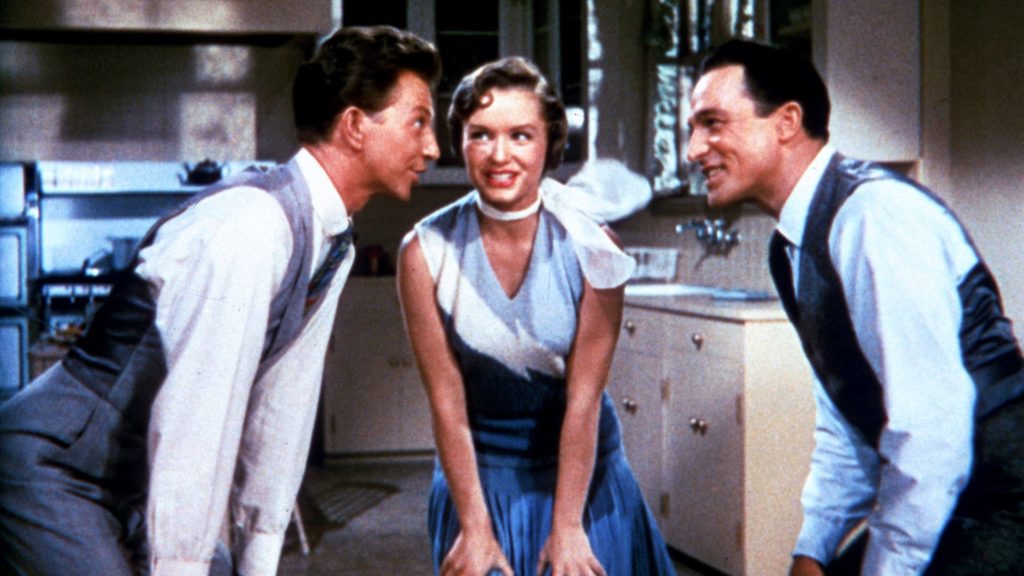
Singin’ in the Rain, though! What a film! A kaleidoscopic celebration of cinema! It’s so full of music and movement and color and contagious joy. You go down the checklist, and the film nails every aspect of its construction. The sheer talent of the cast and crew practically leaps off the screen. The tunes are varied and catchy, even though every single one is a cover or a rip-off. The script is funny and engaging. The editing keeps the energy flowing at a frothy, electric clip that makes the film always feels like it’s moving a thousand miles an hour.
The key feature of Singin’ in the Rain, of course, is its numbers and choreography. It’s impossible not to watch its long, breathless takes with awe as its cast nail every acrobatic and intricate piece of choreography, often involving stunts and props in takes lasting close to a minute long. (Donald O’Connor nails two front flips in a single shot in “Make ’em Laugh,” e.g.)
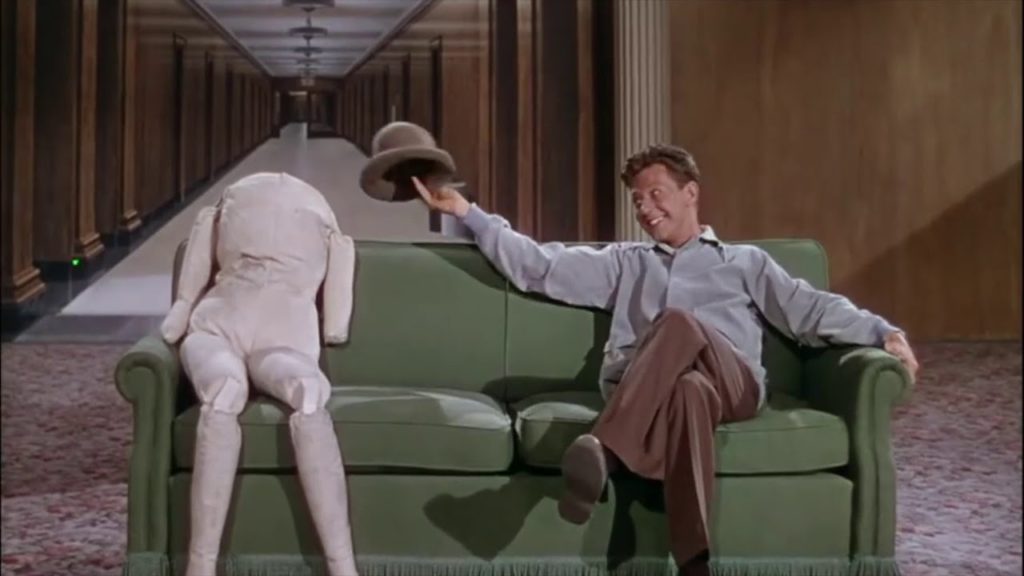
I suspect part of the reason that critics have cottoned so strongly to Singin’ in the Rain is its meta-love of cinema. The film is in adoration of the technical and business changes that led to its own creation. Beyond that, it toys with the fabric of moviemaking itself, with lots of gags on the quirks of sync-sound and the constructed theatricality of cinema. (The bit where the audio falls out of sync and Gene Kelly and Jean Hagen say each other’s lines is terrific.)
So much of the movie’s charm springs from the performances of the tremendous cast. Kelly is lights-out as Don Lockwood, a charming (and mildly pathetic) movie star struggling with his craft. Debbie Reynolds, only 19, keeps up with the juggernauts around her every step of the way. Jean Hagen gives maybe the funniest and cleverest performance in the film (though I have more thoughts on her character in a second). But the tour de force comes from O’Connor as Cosmo, an elastic, goofy turn that takes the notion of comic relief and elevates into virtuosic wizardry. His comedic timing and rubbery faces and hysterical reactions steal the show.
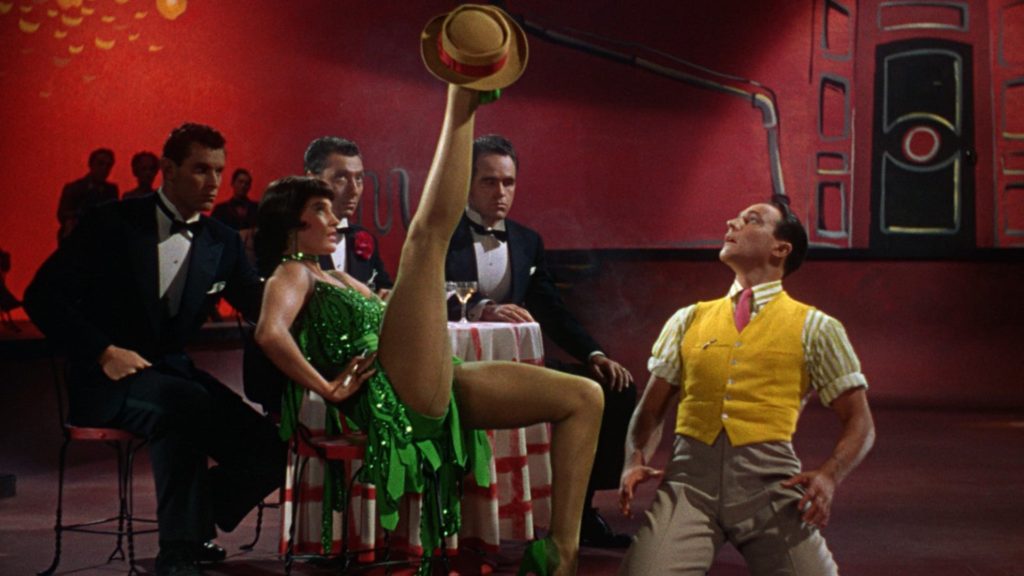
You probably know the story: Singin’ in the Rain chronicles the tumultuous transition from silent cinema to the age of sound, with lots of fun jabs at Hollywood, movie stars, silent and early sound cinema, movie fakeness, and celebrity culture.
What’s really striking when you parse it out is just how ramshackle the story is. Its proper conflict — using Kathy Selden’s (Reynolds) voice to dub over Lina Lamont’s (Hagen) voice in an upcoming musical to prevent a flop and save Lockwood’s career — takes up all of, like, 20 minutes. A few of the numbers are gracelessly sewn into the plot, very clearly a shrug by the writers to find a spot for a specific tune. The obvious example is the dreamy Broadway Melody medley near the climax of the film which runs for almost 10 minutes and has no story function. It’s a beautiful piece of musical filmmaking, but a total momentum-sucker from what little narrative thrust the movie has.
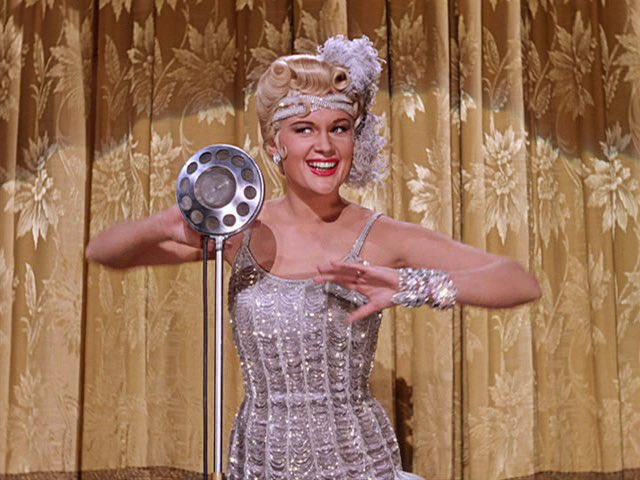
The quirkiness of Broadway Melody is pretty squarely a “feature, not a bug” of what is essentially a jukebox musical of past MGM hits. But there is one issue in an otherwise excellent screenplay that I think is an outright problem, and this is the film’s nastiness towards Lina Lamont. Lina is booed and humiliated out of the room, with no obvious prospect for her future, but her story should be more tragedy than punchline. For a film that’s generally so joyful and humane, it’s a mean-spirited plot thread and outcome.
Ultimately, it’s hard not to be dazzled by Singin’ in the Rain. Its reputation as an eminently watchable layer cake of a film is well-earned, and it only excites me to look deeper into classic Hollywood musicals. (Leave your recommendations in the comments, if you feel so inclined.)
Is It Good?
Exceptionally Good (7/8)
Dan is the founder and head critic of The Goods. Follow Dan on Letterboxd. Join the Discord for updates and discussion.

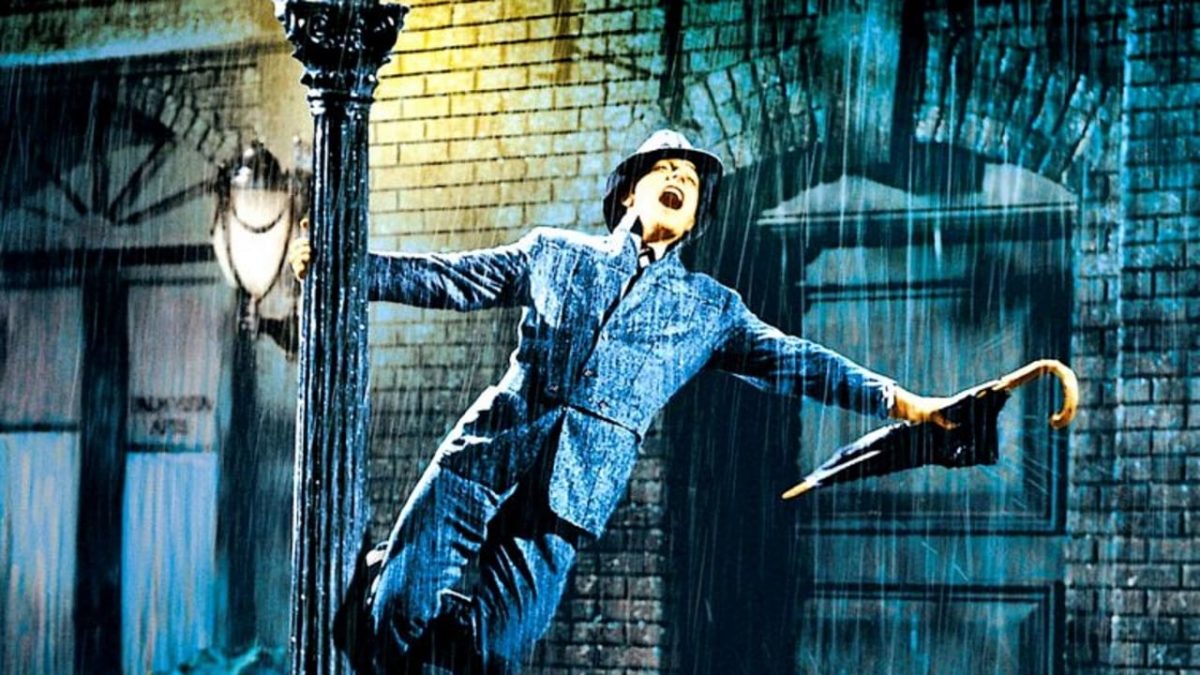
3 replies on “Singin’ in the Rain (1952)”
It’s a perfectly reasonable choice for anyone’s favorite old musical, but I confess that anytime I hear anyone claim that, my reaction is “so you’ve seen three, and the other two are probably An American In Paris and The Wizard of Oz.” (Or, “you’re just let consensus form your taste.”) But consensus isn’t too wrong here, I love it a lot–I’ve finally built a running ranked list of pre-1961 musicals that I’ll make public when I’ve hit no less than 150, or maybe 200, but it’s no big revelation to say Singin’ In the Rain is and will likely remain my no. 3 after Daddy Long Legs and Good News.
I actually like the screenplay quite a bit. It’s funny, and while “Broadway Melody” is shockingly uncoordinated with the story, that’s mainly because the rest of it feels, to me,very well integrated. I dunno, if you think this is modular and find that a bad thing, old musicals (particular most pre-roughly-1947 ones) may try your patience. Long Legs and Good News are extremely well-integrated, though. I feel this shouldn’t be an absolute requisite, and there are numerous integrated musicals that suuuck, but the fact is those three are the *only* three live action musicals I’ve ever seen that I would give full masterpiece marks to. Unless I finally give in and hit La La Land with a 10/10 next time I see it.
Other recommendations: anything with the Champions in starring or co-starring roles is worth watching, plus you can feel like a real smarty pants when other people only know Kelly and Astaire. Gold Diggers of 1933 is probably the best Berkeley movie. Jupiter’s Darling arguably isn’t even a good movie, but it has THE Esther Williams water ballet, just astoundingly creative. Sun Valley Serenade isn’t the best Sonja Henie ice musical but I believe it’s the best that has an HD transfer and you don’t need to hunt for a used Fox Archive DVD. The best Eleanor Powell is either the Broadway Melody of 1936 or 1940. ’38 is lackluster. ’40 has the added benefit of Astaire.
That call-to-action at the end of the review was targeted specifically at you (though if anyone else reads this I’d love to hear your favorite studio-era musicals, too). I’m gonna make a list from this. Thanks.
And, yeah, in case it wasn’t clear, I actually think the script is quite good overall. Not being perfectly integrated isn’t a dealbreaker. A bunch of great scenes, especially any with Lina (Hagen getting the movie’s only Oscar nomination is a historical quirk, but I can’t entirely blame the Academy for choosing her since it’s not clear whether they view “ungodly dancing ability” as being in the acting award purview, and I think she’s the best at the stuff when music’s not playing).
It’s a mystery that I have not yet been able to resolve, but there used to be a best dance direction Oscar, yet only between the years of 1935 and 1937. Why it vanished then is unclear to me and it obviously would’ve continued to be useful for the next, y’know, at least twenty years.